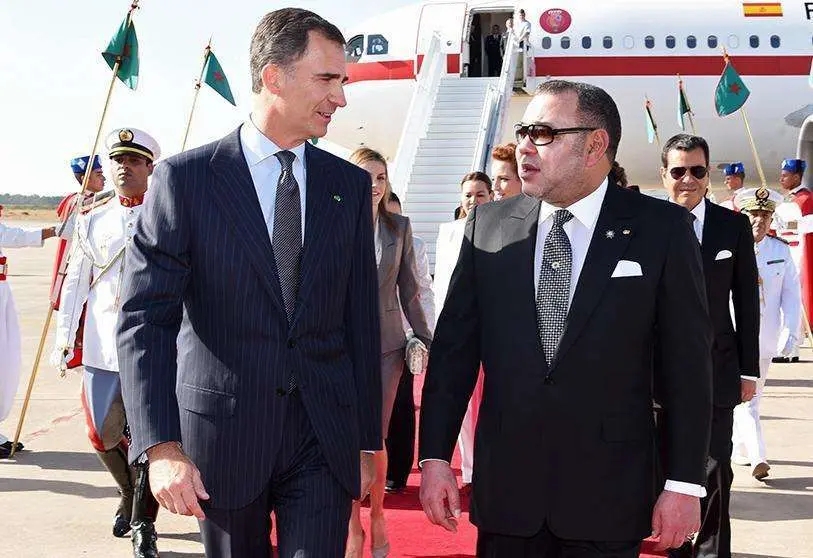The crisis with Morocco has no economic solution, but a political one

The bilateral crisis between Spain and Morocco triggered by Operation Ghali, orchestrated by the Algerian secret services with the complicity of the government of Pedro Sanchez, has had serious economic and political repercussions, including in the latter the deterioration of the border situation in Ceuta and Melilla, with the massive entry of young Moroccans and the passive complicity of the Moroccan police guarding access to the city of Ceuta.
The consequences of the crisis have affected economic relations, leaving Spain out of numerous infrastructure and business projects between the two shores of the Strait. But above all it has had a negative impact on political relations, with the freezing of diplomatic relations, the call for consultations of the Moroccan ambassador in Spain, Karima Benyaich, the postponement sine die of the Spanish-Moroccan High Level Meeting planned for 2021 with the necessary trip of President Pedro Sanchez to Rabat and his audience with King Mohamed VI, and the refusal of the Moroccan Ministry of Foreign Affairs, headed by Nacer Burita, to accept the trip of the Spanish Minister José Manuel Albares to Rabat, actively and passively requested by the Spanish government.
The bilateral crisis has affected both chapters; however, its solution is not economic, but political, and passes through the explicit recognition by the Government of Pedro Sanchez of the mistake committed with Operation Ghali, by not duly and previously informing Morocco.
The Spanish government's media network, both written and audiovisual, is selling the idea that Spain has made a great gesture, decided by President Sanchez himself against the opinion of part of the Executive, by allowing the use of the section of the Spain/Morocco gas pipeline closed due to Algiers' refusal to extend its contract, which expired in the fall of 2021, to transport natural gas to Morocco after its transformation from liquid to gas in Spanish facilities. Some media go so far as to suggest that "now it is Morocco's turn to make a move", allowing the return of the ambassador to Madrid and the resumption of normal relations.
However, this "Spanish gesture at Morocco's request" is neither sufficient nor one hundred percent true. Morocco needs a supply of natural gas, mainly to feed the two combined cycle power plants of Tahaddart and Ain Beni Mathar, located in the north of the country. This is undoubtedly the case. If Morocco does not manage to import the natural gas needed by the two power plants - the discoveries of gas pockets in the Moroccan subsoil will not be available until 2023 - this will generate a small but harmful electricity shortage for the economy of the Maghreb country.
But what the Spanish officialist media network hides is that Spanish interests are very important in the two Moroccan power plants. The Tahaddart plant is managed by ENDESA, and in the Ain Beni Mathar plant the Spanish company ABENGOA, which built the plant, is still in charge of its operation and maintenance. Therefore, the "gesture" of President Sanchez has an essential component of Spanish internal use: to mitigate the criticism coming from the business world for the Spanish mismanagement of the bilateral crisis, and the lack of real will to solve it in political terms.
Certainly the Spanish gestures in the economic and commercial field towards Morocco are important and from the other side of the Strait of Gibraltar they are probably appreciated as such. But the solution to the crisis is still political, and it affects credibility, confidence and the fulfillment of the commitments made between the parties.

